We’re all biased – there’s no getting away from it. My own particular unfair bias is against taxi drivers; as a cyclist I have been sworn at, side-swiped and (once) squeezed with my bike against the back of a lorry in a queue of traffic by enough taxi drivers to make me mistrust the lot of them. But as I write this I know it’s unfair. A few months ago I was on a Boris bike in Marylebone and I was lost; cycling the wrong way up a one-way street I came wheel to bonnet with a black cab. I steeled myself for the (in this case, justified) abuse but I could not have been more wrong: the driver wound down his window, asked whether I was lost (must have seen the sheer panic on my face) and gave me careful directions and a jolly wave as I set off. And yet, and yet… I’m still not keen on cabbies.
By now you’re wondering how on earth I am going to haul this around to AML, but hold on tight because here we go: we need to be aware of our own biases when doing due diligence checks and risk assessments. We all have our own cognitive bias – a built-in tendency to assess information in a certain way. And from an AML perspective, two flavours of cognitive bias are particularly dangerous. Confirmation bias means that once we have made up our mind on a subject (taxi = t***er), we tend to notice only information that confirms that view (squished against lorry) and discard anything that contradicts it (charming fellow in Marylebone). And in order to make a fair assessment, you should of course take all information on face value and put it into the mix – whether it supports your much-cherished view or not.
Alongside this we have availability bias. When asked to judge whether something is true or not, we often make our decision based on how easily examples (or counter-examples) come to mind, and not on a full assessment of all possible examples. In the AML sphere, let’s take corrupt African leaders. I bet you can name five without even breaking a sweat. Given a little longer and a plate of Jaffa Cakes, I bet you could get to a dozen – spoilt for choice, shooting fish in a barrel, etc.. But have you heard of the Ibrahim Prize for Achievement in African Leadership? Founded by Sudanese-born mobile phone magnate Mo Ibrahim, the award recognises “recognises and celebrates African executive leaders who, under challenging circumstances, have developed their countries and strengthened democracy and human rights for the shared benefit of their people, paving the way for sustainable and equitable prosperity”. And now that you know that (and without following that link – I’m on to you) , can you name five previous winners? Go on then, two? (I’m insisting on two, because Nelson Mandela is just too easy – and yes, he won an award in 2007.) Tricky, isn’t it – because the press rarely reports good, honest African leaders when the bling-y ones are so much more fun, with their gold-plated bath-taps and cellars of three hundred bottles of Chateau Petrus. But in the spirit of full disclosure – after all, full disclosure is the enemy of availability bias (and there’s a winning slogan for your holiday t-shirt) – I should say that although Ellen Johnson Sirleaf of Liberia won an award in 2017, “in 2009, 2010, 2012, 2013, 2015 and 2016 the [Ibrahim] Prize Committee, after in-depth review, did not select a winner”.
So what can we AML-ers do to guard against our own bias? Top tips:
- When gathering due diligence information, don’t discard it as you go – something that seemed irrelevant at the time might become much more significant later in the process, so save it all to make an informed overall judgement
- Encourage active questioning and constructive dissent to solicit a wide range of views
- Show your findings to someone who is prepared to play devil’s advocate, particularly if you fear you might be too close to the situation to assess it objectively
- Read and learn widely: the more balanced and deep knowledge you have, the less likely you are to fall unwitting victim to bias.






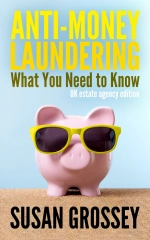

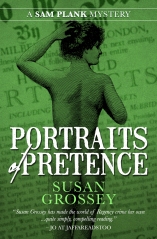



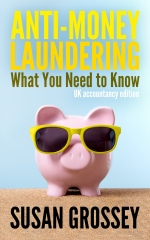

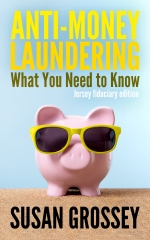

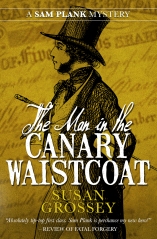




Good advice for life generally Susan, not only for AML practitioners. Most of us are entrenched in our views and not much will shift us. In politics, there are a percentage of floating voters to shift the balance but the MLRO is generally on his/her own.
Sadly that’s the truth, Roy. I try to remind myself of the famous response from the Nobel prize-winning economist Paul Samuelson when he was accused by the press of changing his mind on how much inflation is tolerable: “When events change, I change my mind.
What do you do?”